Of all the animals on the farm, the dogs win my love the most, but surprisingly to me, the sheep have a very close reign on my heart as well. I can stand and watch them for hours.
Sheep are not dumb, at least not most of the breeds I have had, and that is a considerable amount. I choose primitives, or the breeds that are not improved by man, and improved is really tongue in cheek, because in my humble opinion, man's improvement meddles with the genes too much and causes great losses of important traits, like being naturally pest resistant. Most of my sheep do not need to be wormed. It is not that they do not have worms, but they are able to manage the worm loads they have without losing condition. You cannot say that prior to chemical wormers, sheep were routinely wormed by the shepherds. In those old days, they were selected for their vigour and strength, which included health and the ability to fight off disease and thrive without being sick. Worms are always going to be present in pastures. Sheep are always going to eat the grass that has worms and the cycle will always continue, but it does not need to weaken the sheep beyond its ability to cope with nature. That is not to say that on occasion an individual sheep, for whatever particular reason, will need some intervention, only to remark that the sheep I want on my farm are strong and naturally resistant.
Certain breeds seem to do better too and it also seems that those breeds are more intelligent than man bred models. The Icelandics for example, are almost comical. They jump when they are happy and frolic and play. It is a joy to watch them! When they are being fed or watered, they express themselves. They talk and tell me they are glad I am there. I want to stroke their beautiful long woolen coats and pat their heads and tell them I am glad they are there for me. I have milked a few Icelandic ewes, not regularly, but they have rich creamy milk that is plentiful. I am aware of at least one dairy that emplyes Icelandic sheep, the original triple purpose girls, providing meat, milk and wool. That is a lot more than beef, which people eat too much of, in my humble opinion. One could have 7 Icelandic sheep on the same pasture as 1 beef cow, possibly more, since they thrive on marginal forage. Of course, the best feed is always preferred, but they COULD make do, whereas other man breeds cannot.
Another old breed that I am in love with are the Babydolls. Oh my goodness! They are the sweetest natured little sheep, standing knee high only. But they are a meat breed, or were, and were the original Southdown sheep, with very fine, but short fleece, rich milk (if you can get underneath one to milk her) and chunky, heavy carcasses. I have not eaten any Babydoll meat, but did try Icelandic, strictly grass fed, and it is delicious. Rosy, and her little Rosalee (and Ross), the twins from this year, come when I call them and they also talk to me. Rosy and Rosalee are quiet and somewhat shy. They will not compete for food. Ross and Randy (a Babydoll ram with a little Jacob in him) live with the goats and they are definitely at the bottom of the run there, so I feed them away from the goats. I just have to make sure there are enough spots for the sheep to eat at so they do not have to compete or they will draw back, but then Rosy complains loudly to me and I know I have to make sure she has a place to eat where she can enjoy her hay without fighting for it.
Another breed that I love are the Cotswolds. They are a huge sheep, with the ram being close to 300 pounds and the ewes at 200 to 250 pounds. They have soft ringlets for their fleece and although I have not used it for anything, I recall having met my first Cotswold on Salt Spring Island long, long ago and deciding then that I would one day have these sheep. The ringlets are often sold to felters and wool painters to use for particular special areas, such as Santa bears or wispy clouds. I gave my wool from last year to my business partner, but so far not much has happened there with it. I was hoping that it would be sold. In a few months this year's girls will be shorn again. I have given up on trying to keep the hay out of the wool and being a fibre farm. It is too hard in the frozen north where we feed hay 9 months a year and the sheep are all different sizes.
When I retire from here, somehow I would like to keep a few sheep in my life. They make me happy. Whodathunkit? Sheep make people happy! Me, they do, at least. From my gentle Cotswolds to the little Babydolls, and the furry Icelandics, at least a few of them must remain in my life somehow. How, I am not just sure yet. But my sheepy love is true and must be fulfilled with my charges. Do you love any sheep?

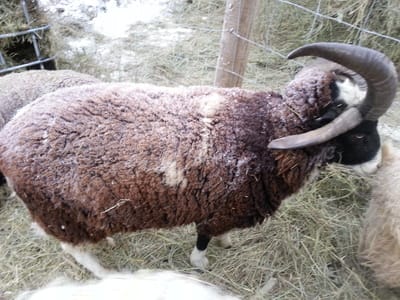
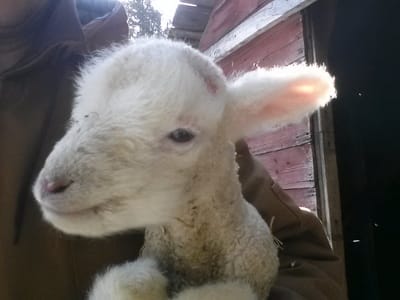
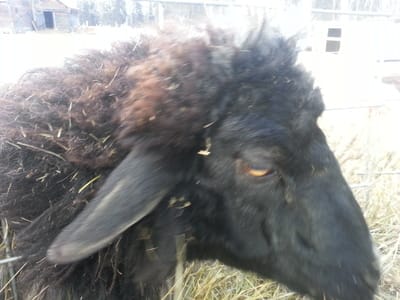
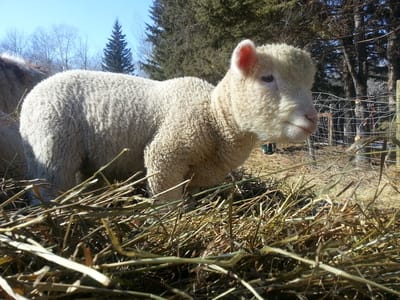
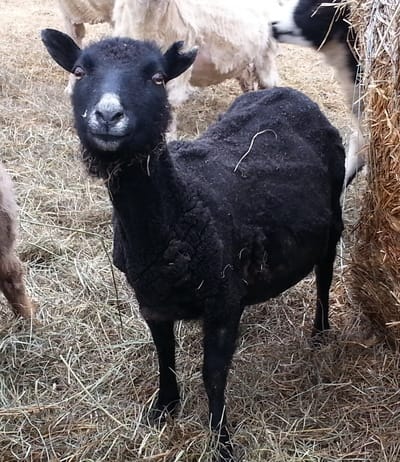
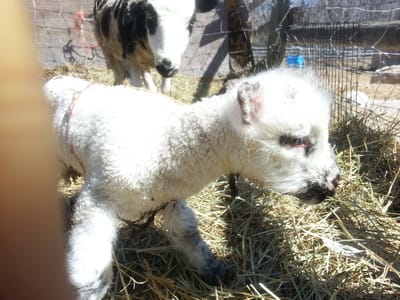
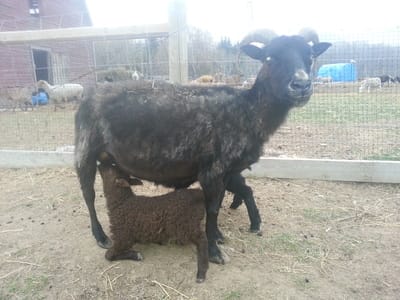
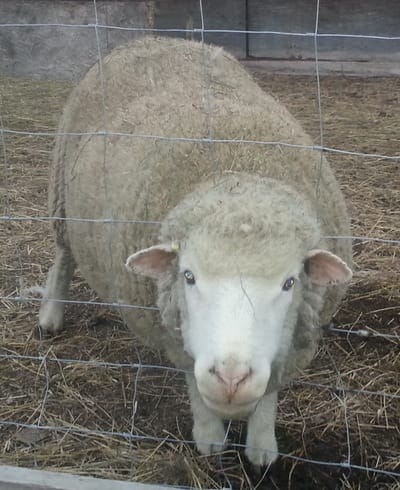
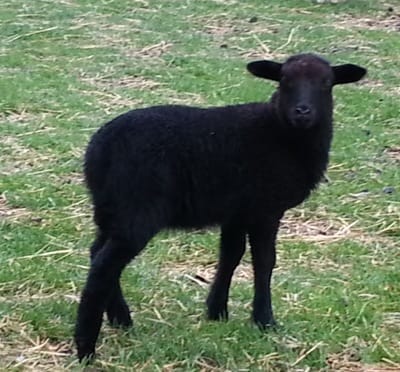
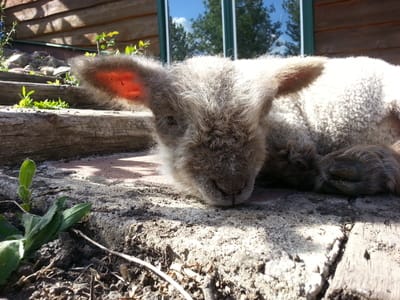
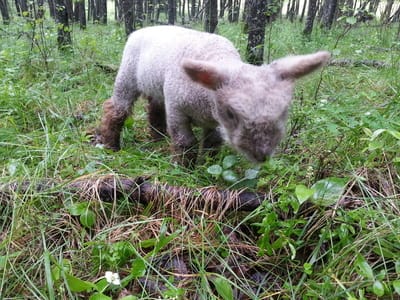
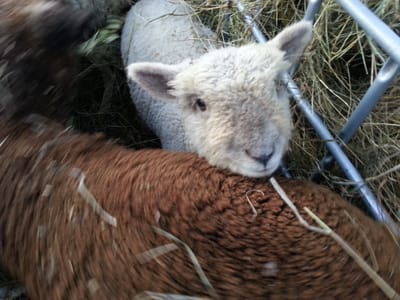
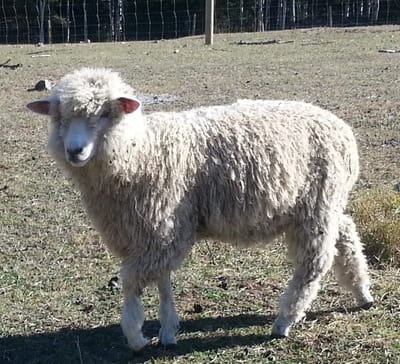
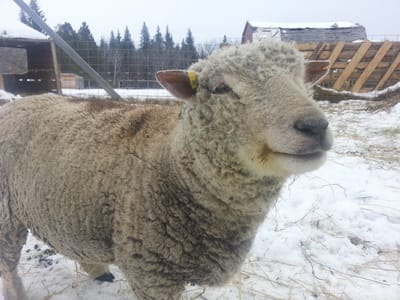
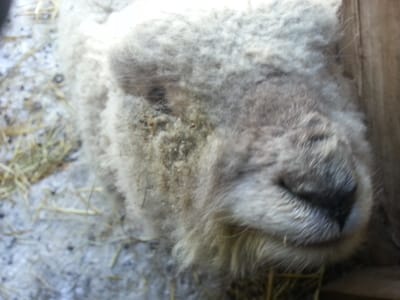
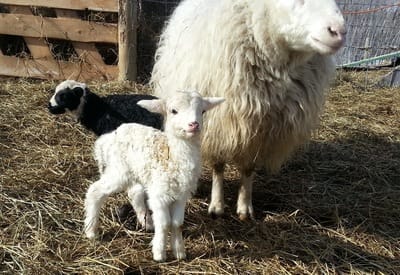
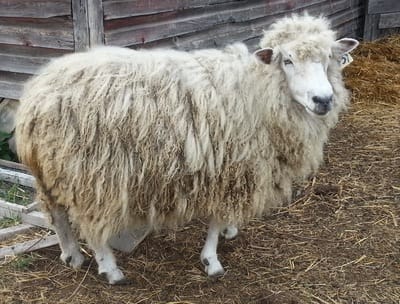
 RSS Feed
RSS Feed